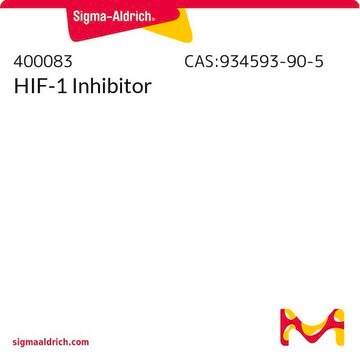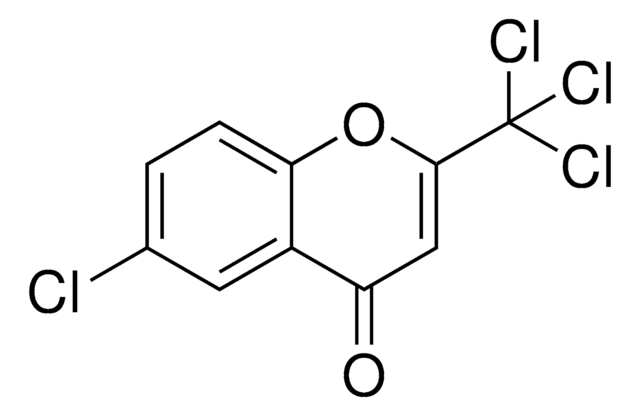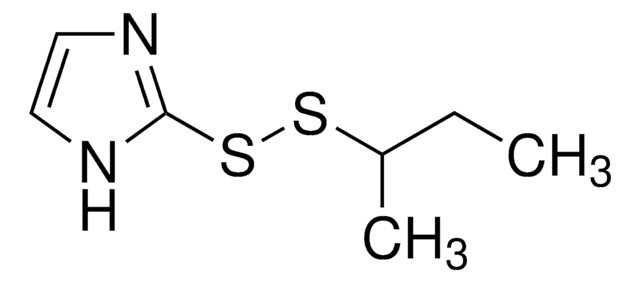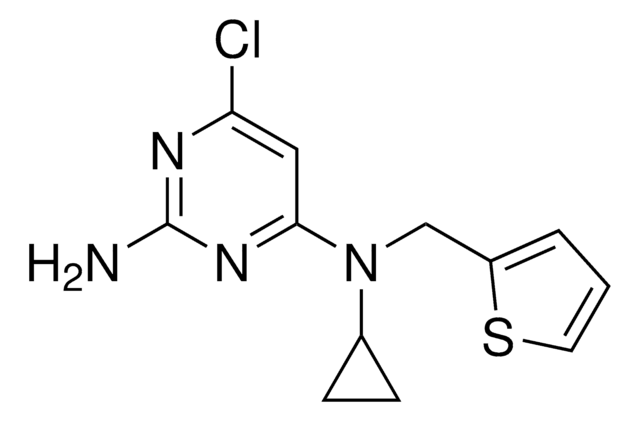F8807
FM19G11
≥98% (HPLC)
Sinónimos:
3-[(2,4-Dinitrobenzoyl)amino]-benzoic acid 2-(4-methylphenyl)-2-oxoethyl ester, [2-oxo-2-(p-tolyl)ethyl] 3-[(2,4-dinitrobenzoyl)amino]benzoate
About This Item
Productos recomendados
Quality Level
assay
≥98% (HPLC)
form
powder
color
off-white to light brown
solubility
DMSO: ≥40 mg/mL
storage temp.
2-8°C
SMILES string
Cc1ccc(cc1)C(=O)COC(=O)c2cccc(NC(=O)c3ccc(cc3[N+]([O-])=O)[N+]([O-])=O)c2
InChI
1S/C23H17N3O8/c1-14-5-7-15(8-6-14)21(27)13-34-23(29)16-3-2-4-17(11-16)24-22(28)19-10-9-18(25(30)31)12-20(19)26(32)33/h2-12H,13H2,1H3,(H,24,28)
InChI key
XVUOIWIIQVGWAJ-UHFFFAOYSA-N
Application
- to study the effects ofFM19G11-loaded gold nanoparticles (NPs) on self-renewal and proliferation of ependymal stem progenitor cells (epSPCs) of mice
- to study its effects on the O6-methylguanine DNA-methyltransferase (MGMT) expression in glioblastoma (GBM) cells
- to study its effects on microphthalmia-associated transcription factor (MITF) expression in melanoma cell line
Biochem/physiol Actions
Storage Class
11 - Combustible Solids
wgk_germany
WGK 3
flash_point_f
Not applicable
flash_point_c
Not applicable
Elija entre una de las versiones más recientes:
Certificados de análisis (COA)
¿No ve la versión correcta?
Si necesita una versión concreta, puede buscar un certificado específico por el número de lote.
¿Ya tiene este producto?
Encuentre la documentación para los productos que ha comprado recientemente en la Biblioteca de documentos.
Nuestro equipo de científicos tiene experiencia en todas las áreas de investigación: Ciencias de la vida, Ciencia de los materiales, Síntesis química, Cromatografía, Analítica y muchas otras.
Póngase en contacto con el Servicio técnico








